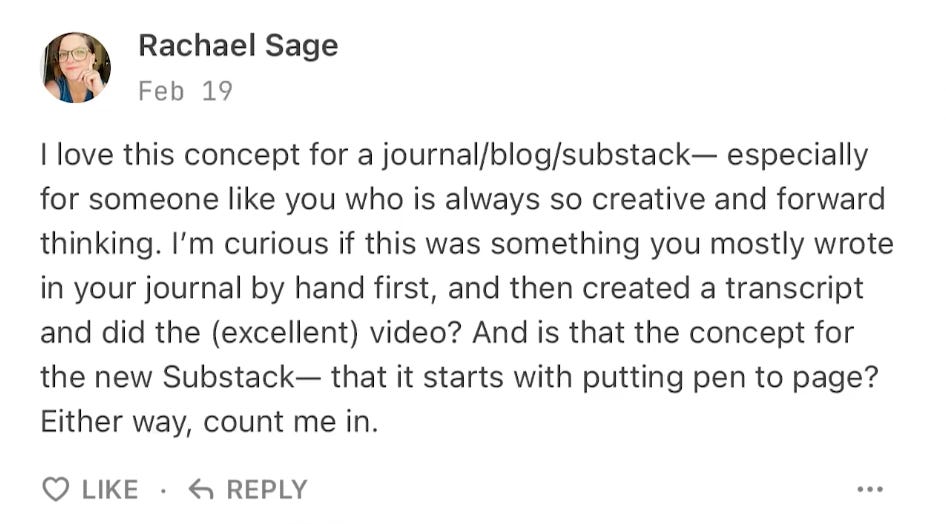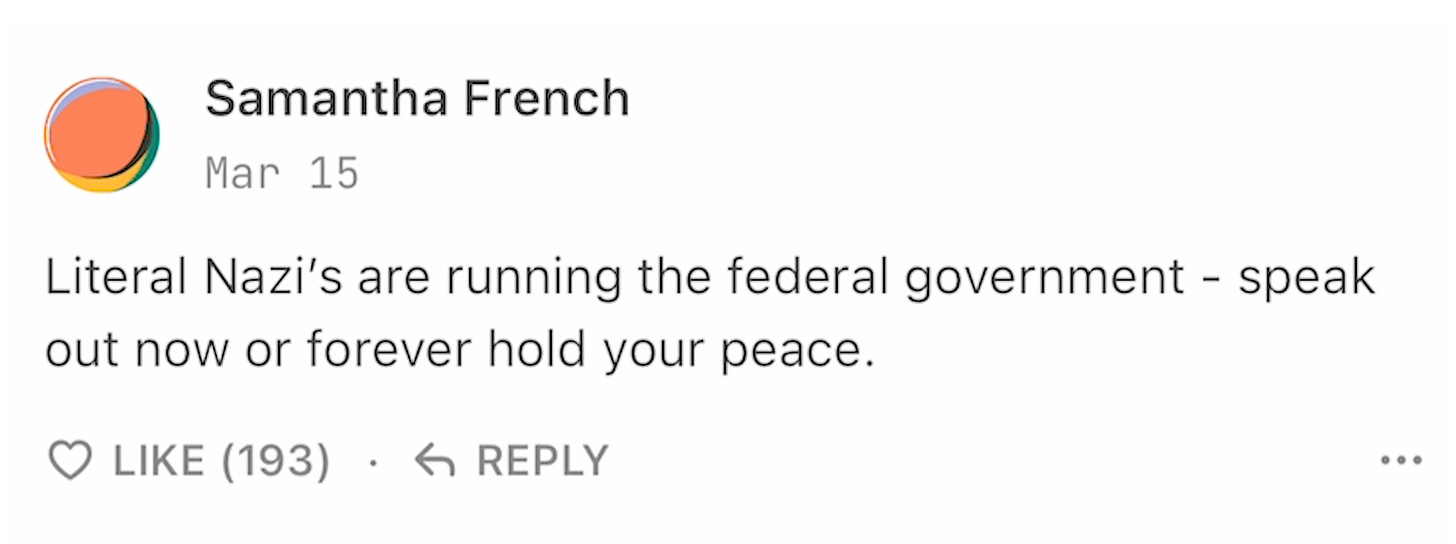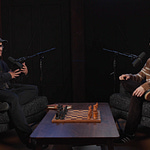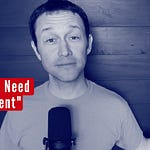Welcome to New Mexico. Lunch break. I'm playing Patrick.
Hey everybody. You might have noticed I haven’t written a journal entry in a little while. It’s because I've been making a movie. It’s actually a really exciting film project called Pendulum, I don't know, should I tell you about it?
It’s sort of a horror movie actually, which I haven't done a horror movie before, really, other than maybe a cameo in the 90’s the first time they rebooted the Halloween franchise, Halloween H2O when I was 16.
And this is a different kind of horror movie than Halloween, this is actually the directorial debut of the screenwriter Mark Heyman, who wrote the movie Black Swan, which is one of my favorite scary movies of my generation, directed by Darren Aronofsky, who's actually a producer on this one. It's sort of one of those psychological horror movies with a lot on its mind.
Anyway, I've been having a great time making this movie, but it has meant I haven't really been able to write a lot in this journal, and I thought I would just take an opportunity to try something a little different and that's to respond to some of the great comments that you guys have been writing on these posts. I really appreciate it when I get to see what you all think and, you know, back in the HITRECORD days, it was all about community and interactivity and I want to try to keep that very much alive in this new version of HITRECORD and Joe's Journal, etc.
So I thought it'd be fun to just pick a couple comments that you guys wrote and respond to them. I'll also say, in the comments of this video, ask me some questions. Anything you want to know about, whether it's a question about something I've written in this journal, or a question about anything. Whatever it is you might want to ask me, and maybe I'll start doing some posts like this sometimes, where I just answer questions more extemporaneously, because, as much as I love writing these journal entries where I get to really compose my thoughts and articulate them exactly how I want, it takes a long time and I just don't always have the bandwidth to do it, so I thought I'd give this a try.
So let's go to the first question, comment, question. It's not really quite—oh, it is a question.
So this first question comes from Rachel Sage, and she asks:
So, to be perfectly honest, no, I don't write with a pen very much. I know I made that sort of little logo video where I was writing in a little paper journal with a pen. I sometimes write with a pen, especially if I'm like, taking notes into place where it feels like bad vibes to have the computer.
Occasionally I can feel more creative with a pen, especially if I'm, I don't know, writing something that doesn't involve complete sentences, but usually when I want to like, just really be creative, typing works the best for me. I've been typing ever since I was a little kid and that's how I get my thoughts out in the most fluid way.
I do type in my journal document that I have had for many, many years and these journal entries do start in that private journal document that I don't share with anybody, and then once I've got sort of a first draft, I paste it into its own document and I kind of refine it from there.
Was that way too much information? Was that a lot more than you were asking for? I want to be honest, I don't want to mislead you into thinking that I'm writing these with a pen, because I do really like to type.
The post I've written so far that got by far the most comments, was this one about politics. I asked the question, "Should I not be talking politics in these crazy times?"
One of the most controversial comments in the thread was written by Samantha French and she wrote:
And that incited a long thread of some people saying that it's not right to compare Trump and MAGA to Nazis, and some people saying that it is right. So I feel like I might as well weigh in.
A little bit of context: evoking or invoking Nazis and Hitler is a sensitive topic for me. I'm Jewish, both my parents are Jewish, all my grandparents are Jewish, all my great-grandparents are Jewish, I'm very Jewish.
My grandparents were all born in this country, but all my great-grandparents came from Eastern Europe, and so, when I was growing up, if we would have a get together with my grandparents, it would almost never happen that a whole meal would go by without Hitler and the Nazis coming up in conversation. My grandma, especially, just always brought it up. It was one of those things that just was on her mind so much, she always brought it up.
All of her cousins, all of her aunts and uncles all died because they didn't come to the United States. They were still in Poland, I believe it was, Vilna, which now might be Lithuania, back then it was Poland.
And so I have a particular emotional resonance, as do we all, right? It's not just the Jews that suffered. I think it's really important to remind everybody that the Holocaust was six million Jews, but 11 million people total. There were lots of other people killed in the Holocaust, other kinds of minorities, religious minorities, ethnic minorities, sexual minorities, etc. And that's, of course, not even to talk about all the soldiers who died in the war, as well as innocent casualties, etc.
So, is it fair to compare Trump to Hitler, and MAGA to the Nazis? I think it's actually a complicated question.
On the one hand, I do very much understand how Trump supporters take this comparison as hyperbole, as an exaggeration, saying like, “Hey, he's not rounding up people and putting them on trains or putting them in ovens. He hasn't started a World War. It's not really fair to compare him to Hitler and the Nazis.”
On the other hand I think there are some important similarities. The ones that stand out to me most, you know, I see the world through the lens of media, oftentimes, and Hitler, Goebbels, and the whole Nazi regime, they were masters of media, and the way Trump approaches media does bear resemblance to what the Nazis did.
The whole idea of sowing distrust in the institution of the press, what Trump calls "fake news," Hitler had the same catchphrase. It was "Lügenpresse," which means "lying press," and he used it in very much the same way. There are important similarities.
Of course, the other, perhaps even biggest similarity, is one of the age-old strategies for tyrants throughout history: you demonize an outsider, and then you appeal to the majority and say “It's these outsiders’ fault.” You dehumanize them and make the majority believe that all of their problems stem from these demonic outsiders. This is what Hitler did to great effect with Jews and others, other outsiders, and Trump does do this.
When he says that Haitian immigrants are eating the dogs and the cats, when he compares people to vermin, when he says things like they're poisoning the blood of our nation, this is rhetoric that's pretty similar to Nazi rhetoric. It doesn't change the fact that, hey, maybe there is a problem at our border, maybe the immigration policy of the Biden administration sucked pretty badly, and maybe it makes sense that a lot of people were concerned about that and wanted to vote with that as a primary issue for them. I can respect that. But the extra flavor of the demonization, the dehumanization of outsiders, does smell Nazi-ish.
Last thing I'll say about this, I think my favorite thinker that I've heard and read about this kind of thing that’s going right now, it's this woman named Anne Applebaum, who's a Republican actually. She's a historian, I think a Pulitzer prize-winning historian.
Her latest book from I believe last year is called Autocracy, Inc. Now autocracy, if you aren't familiar with that word, it's, you know, compare it to "democracy." "Democracy" comes from, as far as I understand, the etymology that "demo" means "people" in Latin or Ancient Greek or something. So "democracy" means "power of the people."
"Autocracy," "auto" means "self." So like, one man governs himself. Usually it's a man.
Her book, Autocracy, Inc. is about this sort of new wave of autocrats and she draws a big distinction between autocrats of the 20th century, like Hitler or Stalin or Mussolini or etc., Mao, and the autocrats of today, like Vladimir Putin, Xi Jinping, Viktor Orbán in Russia, China, Hungary, respectively.
And so she makes a point of actually not using the word fascist, not making comparisons to Nazis and Hitler, because the strategy that Putin sort of pioneered, that is a playbook Trump is pretty clearly running now, is different. It's different than the like hyper-ideological and kind of in-your-face rhetoric of the Nazis, and it's a more subtle autocracy. Doesn't necessarily involve, you know, tanks rolling through the streets.
She talks about how losing democracy can be a more gradual and sort of subtle and harder to spot thing nowadays, because this new Autocracy, Inc., she calls it Inc., like incorporated, like they're a business, they run their operations like businesses. They're largely about making money for themselves and their buddies and they don't usually attach themselves to one out front ideology, the way that the Nazis did or the Stalinist communists did. They're kind of more here and there. They put out a lot of different stories. They kind of flood the zone to the point where you're like, “I don't know, I don't know what's true, whatever.”
This is more of an apt comparison, I think. If we're going to talk about Trump and MAGA as a danger, I think the comparison to Putin in Russia, Orban in Hungary, etc., are more apt comparisons than Hitler in Nazi Germany in the middle of the 20th century.
And I really do, if you're interested in this kind of stuff, I really recommend reading Autocracy, Inc. from Anne Applebaum. She also has a Substack, so if you don't feel like buying a book, you wanna just dip your toe, check her out.
Well, I've been talking for a while now. This was an interesting experiment to do this more extemporaneously. Let me know what you think of it. And again, ask me some questions. I'll maybe start doing this, in addition to writing the journal entries. I'd love to just hear from you guys and make it a conversation. So, thanks. 🔴












